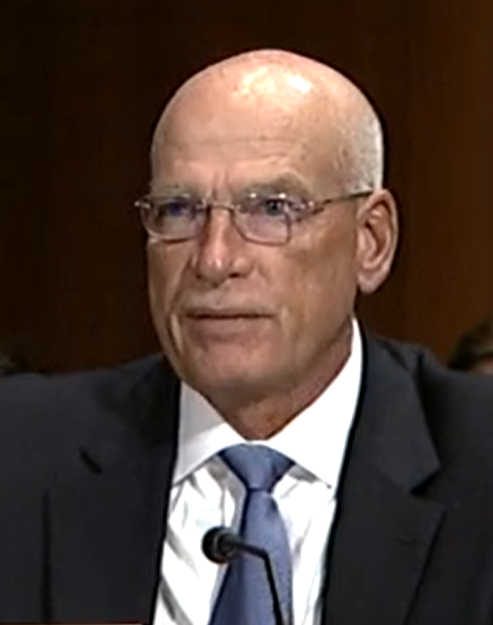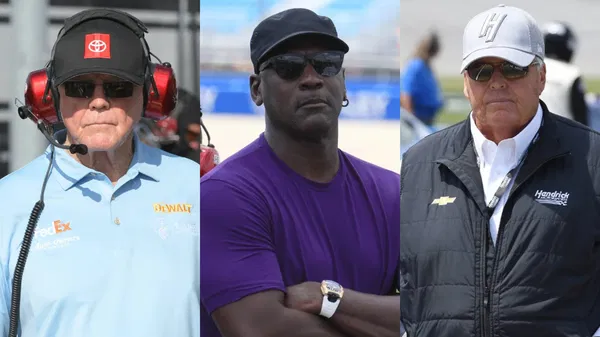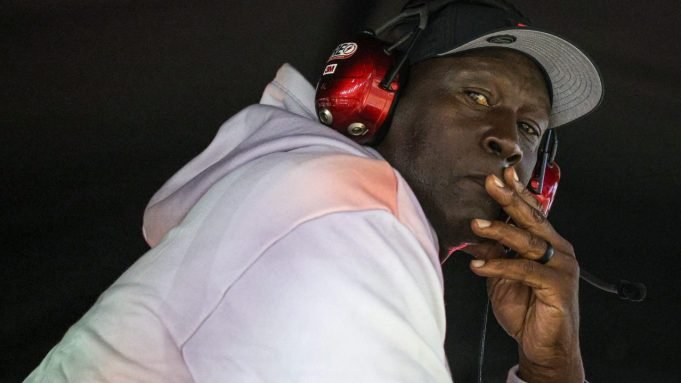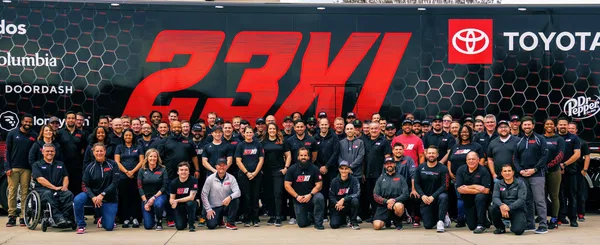LIVE: Legal Battle Shakes NASCAR as 23XI Racing and Front Row Motorsports Secure Key Victory
The 2023 NASCAR offseason has been anything but dull. 23XI Racing, co-owned by Michael Jordan and Denny Hamlin, alongside Bob Jenkins’ Front Row Motorsports (FRM), has turned the sport’s legal and competitive landscape on its head with a landmark lawsuit against NASCAR. This legal fight could reshape the sport, as these teams challenge NASCAR’s alleged “monopolistic” practices, possibly encouraging others to join their fight.
Court Ruling Gives Plaintiffs a Huge Win
In a significant development, Federal Judge Kenneth Bell granted a preliminary injunction in favor of 23XI and FRM. The ruling compels NASCAR to transfer a charter from Stewart-Haas Racing (SHR) to the plaintiffs, ensuring each team has three chartered entries for the 2025 season. This is a monumental victory, granting them guaranteed entries into every race, including the coveted Daytona 500—the crown jewel of NASCAR’s calendar and its most lucrative event.
The judge emphasized that without a charter, teams risk suffering “irreparable harm,” including losing access to top-tier drivers and sponsors. He also acknowledged that NASCAR wields “monopoly power” over the sport, a recognition that could have severe implications for its authority.
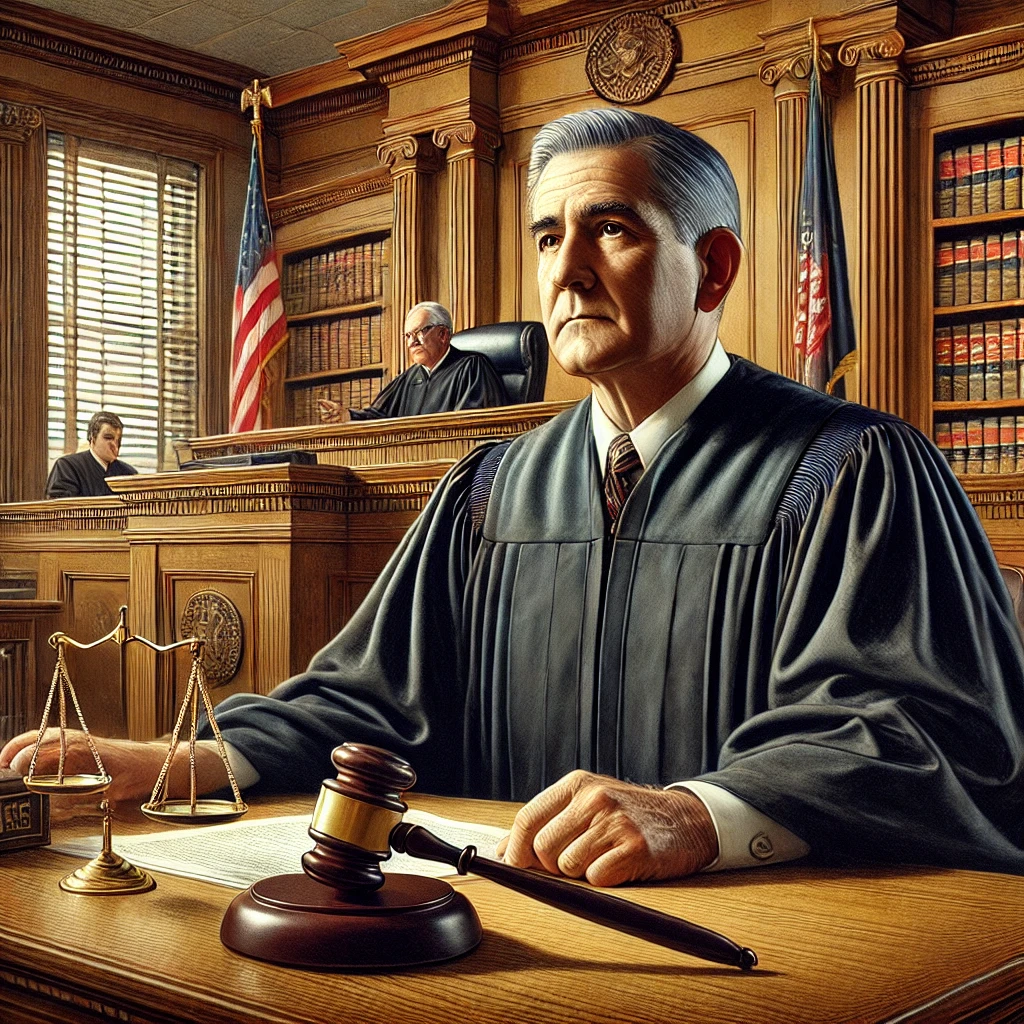
Judge Bell wrote, “NASCAR’s Cup Series is the only premier stock car racing series in the United States, and premier stock car racing is a distinct form of automobile racing with unique cars and highly specialized racing teams for which other types of motorsports like Formula 1 and IndyCar are not substitutes. Therefore, NASCAR fully controls which race teams can compete at the highest level of stock car racing — effectively, it has a 100 (percent) market share.”
Could Other Teams Join the Lawsuit?
This ruling has raised eyebrows among the 13 other teams who signed NASCAR’s charter agreement. For years, team owners like Rick Hendrick of Hendrick Motorsports and Richard Childress of Richard Childress Racing have expressed dissatisfaction with the agreement but felt they had no choice but to sign.
Hendrick previously admitted, “Not everybody was happy. But in any negotiation, you’re not going to get everything you want.” Similarly, Childress once remarked, “I didn’t have a choice,” when discussing his decision to agree to the terms.
Now, in light of the judge’s dismissal of NASCAR’s controversial “you can’t sue us” clause in the charter agreement, other teams might reconsider their positions. NASCAR analyst Eric Estepp highlighted this pivotal moment, saying:
“First things first, obviously this is just the opinion of a single federal judge, but it makes you wonder if any of the other 13 chartered teams would consider joining this lawsuit. This judge basically threw out NASCAR’s ‘you can’t sue us’ clause and said, ‘Hey, that’s arguably illegal.’ Those 13 other teams may see that and say, ‘Okay, well shoot, maybe we’ll attach ourselves to this lawsuit.’”
Teams like Joe Gibbs Racing, Team Penske, and others could be eyeing this legal battle closely. If 23XI and FRM force NASCAR to the negotiating table and secure more favorable terms, it might encourage a broader coalition to demand changes to the charter system.
NASCAR’s Monopoly Power Under Fire
The recognition of NASCAR’s monopoly power could fuel a collective push for reform. As the only premier stock car racing series in the U.S., NASCAR’s control over charters, race access, and revenue distribution has long drawn criticism.
This legal battle isn’t just about charters; it’s about challenging the foundational structures that dictate who gets to compete at the highest level. If the plaintiffs succeed in forcing reforms, it could transform NASCAR’s governance, creating a fairer system for all teams.
What’s Next?
While the preliminary injunction is a massive victory for 23XI Racing and FRM, the fight is far from over. NASCAR is expected to mount a robust defense as the case progresses, and the road ahead remains uncertain.
For now, this ruling has shaken the foundation of NASCAR’s charter system, prompting speculation about whether other teams will join the fight. As dissatisfaction brews, the possibility of a united front against NASCAR’s control is no longer far-fetched.
The implications of this legal challenge could redefine the sport, leaving fans and stakeholders alike asking: Will this be the moment that changes NASCAR forever? Stay tuned for further updates as the story unfolds.
What do you think? Should other teams join this fight? Share your thoughts in the comments below!
